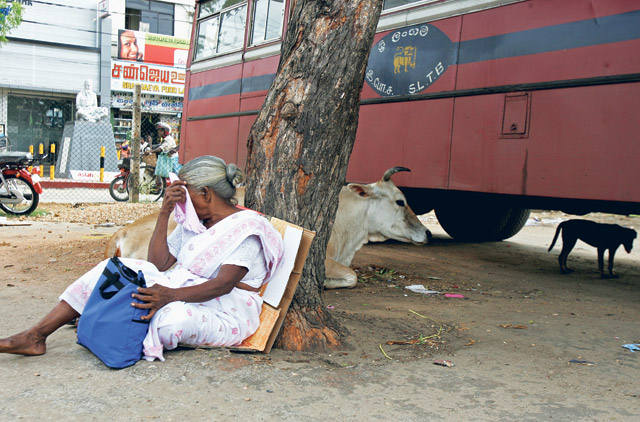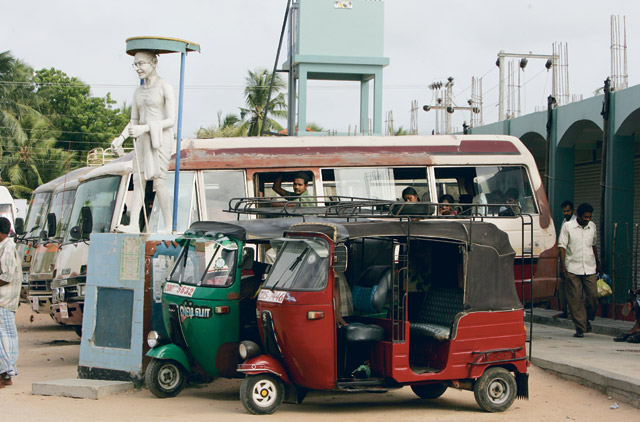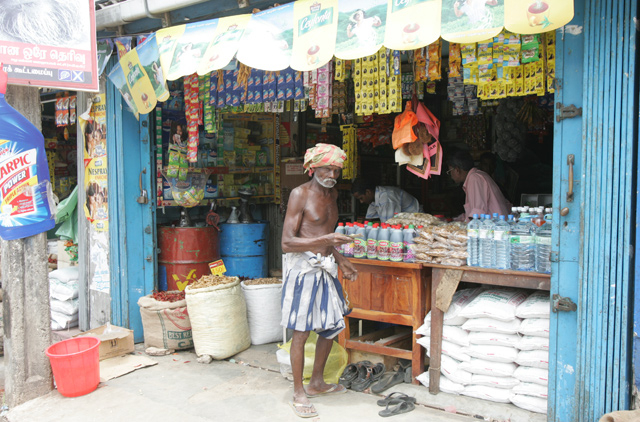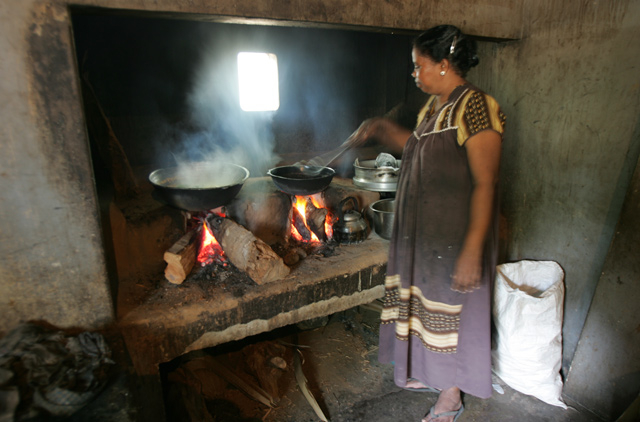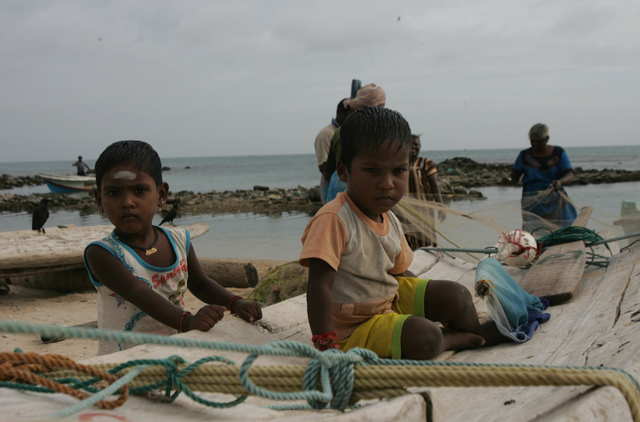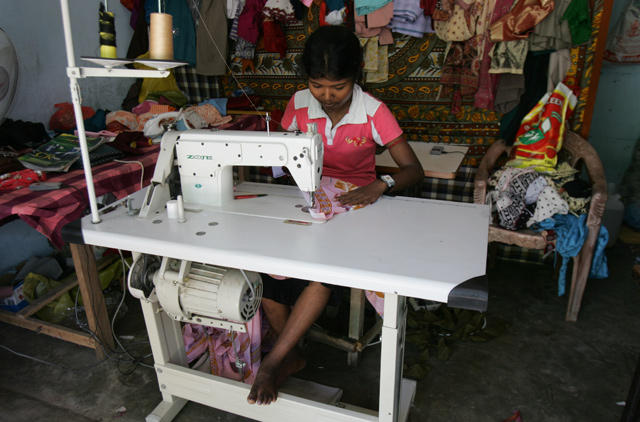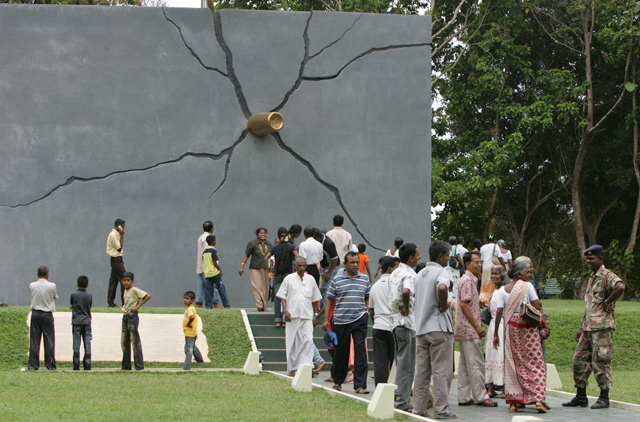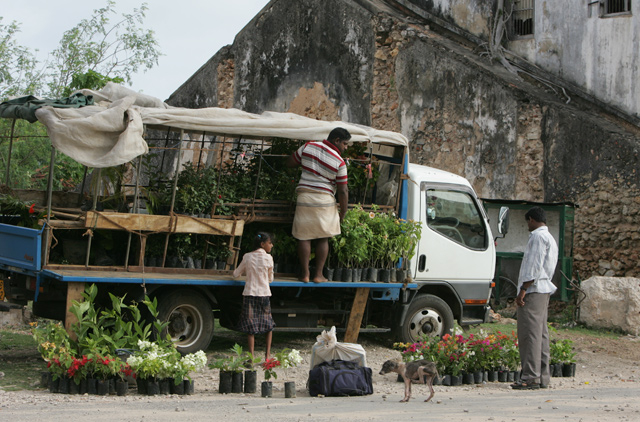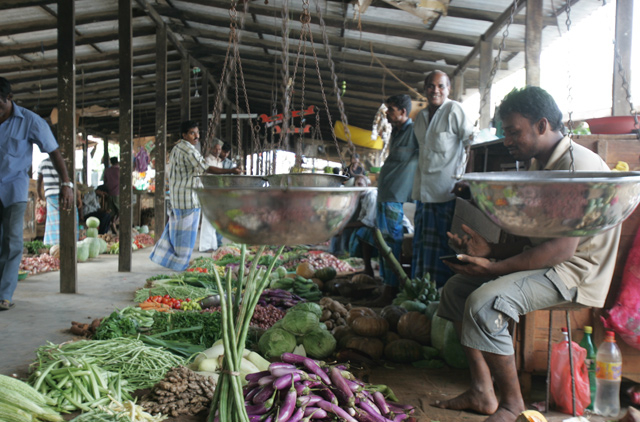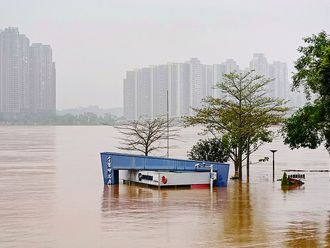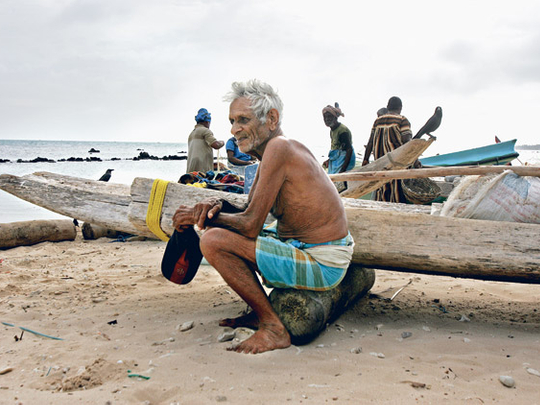
Velvettithurai: "No further," the lance corporal says, moving his Chinese-made T56 rifle off his shoulder. He means business.
I open my arms out to show I am not a threat and plan to obey his order.
"Prabhakaran's house," I point, still hoping to get by this young sentry with obvious orders to stop all from going up the rutted lane.
A second soldier arrives. Then a third, this one a sergeant and clearly not used to foreigners wanting to visit the home of Velupillai Prabhakaran, leader of the Liberation Tigers of Tamil Eelam, a man who led his forces into decades of bloody civil war in Sri Lanka which claimed an estimated 100,000 lives.
The house that belonged to this poster boy of terror is some 100 metres away up the rutted pathway in this postcard fishing village.
I move a few metres up the lane. "Just up here," I gesture, hoping to be able to wangle my way further up for a look.
"No visitors," the sergeant says. "No photographs. No one is allowed up there."
I move some more feet up the lane, hoping to catch a glimpse.
"What about a video?" I ask, still gaining a few more feet on my objective. "It's just up there."
Up there is the demolished family home where Prabhakaran was born on November 26, 1954. And up there is where I cannot go, not for any price nor any argument.
"You should go, now," the sergeant says in a tone of voice that tells me I have pushed far enough. He looks at the lance corporal still cradling the semi-cocked rifle. I know the look.
The second soldier has brought his weapon off his shoulder and holds it, one hand by the trigger guard, a hand on the stock. I hope there's a safety switch on these T56s.
I retreat from the rutted lane.
This village is the ideological home of the LTTE, just kilometres from Point Pedro where Portuguese and Dutch and British settlers came and saw and conquered, and now sealed off as a high security zone by the Sri Lankan military.
Along the beach this early sunny morning, women and children pull small wriggling silver fish from the nets just landed by their fishermen and their boats.
Every 100 metres on the snaking road alongside this beach, young camouflaged troops in webbing stand sentinel over the sea and the villagers. Every move is watched under careful eyes, every car searched, every movement noted under binoculars.
Three fishermen eye me cautiously, a stranger in their midst.
Is the LTTE gone forever, I ask after establishing trust over small talk and finding out that the oldest has English better than most I've come across since arriving in Sri Lanka five days earlier.
"The LTTE are gone from here for now," he says. "You will not see the LTTE as it was before. Our struggle still continues."
Struggle for freedom
That struggle for a separate Tamil homeland has been going on now for nearly four decades, and I am left in no doubt that it will continue.
"It is a different phase," the well-versed and articulate fisherman says. "We will continue the struggle but it will not be fought from here. We will carry on the struggle from overseas. Our brothers in Toronto, London and Australia will carry one the fight. That is where the struggle will be fought from."
He cautiously looks over his shoulder, checking to make sure our conversation isn't drawing too much attention from the young soldiers in combat webbing and camouflage.
"Remember this," he cautions. "Some days the hunter gets the tiger. Some days the tiger gets the hunter."
He leaves, giving me a wink and a nod, affirmation that the LTTE is still functioning.
At nearby Nelliady, buses fill up with those heading to work or school in Jaffna. Three young men watch and wait and wait and watch. They have no work to occupy their time.
Instead, they fill their days hanging around the town square, getting money when they can, longing for the chance to improve their lives.
"No more LTTE," one says. "Now we need jobs. There is nothing to do. If we do not have work, then we don't have anything, not even our own home."
Our own home? Is he talking about a physical roof over his head or a Tamil homeland?
"No more fighting now," he says. "There are too many military here."
Why do I get the impression he would be picking up a weapon if the odds were slightly more in his favour?
He smiles and wobbles his head as is the habit of this part of the world.
But the military is everywhere.
The road to Kankasanturi is blocked by a checkpoint, where few if any pass without scrutiny. Buses pull into a staging area, their passengers get off, file through booths for searching, then pass on with details noted.
High security zone
"You are a foreigner," a corporal says as a regular police sergeant in a creased khaki uniform gives way to military authority. "This is a high security zone," he says. "You cannot enter."
I note his rank, and ask to speak to an officer. After several moments, a burly officer arrives with a single pip on his shoulder epaulettes and a braided green lanyard running down to a leather-holstered revolver in his waist belt; a second lieutenant, the lowest rung for commissioned officers.
"High security zone," he says. "No entry." I argue that I have a permission from the Ministry of Defence headquarters in Colombo to be in the region, and that I should be allowed free access to pass.
"No," he insists.
"You are a second lieutenant," I challenge. I place three fingers on my shoulder, mimicking his epaulette and ask to speak to a captain.
Beyond the checkpoint
The corporal smiles, clearly aware I know my ranks and how to deal with this burly second lieutenant.
A white UN four-wheel-drive vehicle comes to the checkpoint, and it too is searched and its occupants noted. Clearly, whatever lies beyond this checkpoint is sensitive, making me all the more determined to see. After several minutes, an officer arrives on the scene, causing discomfort to the burly second lieutenant.
"Good morning major," I say, noting the embroidered Sri Lankan coat of arms on his shoulder.
He smiles. That's the only friendly gesture from him in 30 minutes of discussion. We wait for a phone call from MoD in Colombo.
When it comes the answer is still a firm "No." "The area is not safe for foreigners," the major says.
"Does that mean there are LTTE there?" I ask.
"No, it's just not safe for you," he answers.
"But others are going through, why not I?" I offer.
"Sir, this is a military zone. It is high security. You are a foreigner here in this land. Do not challenge us. You are here on our permission. That permission can be withdrawn at any time. You cannot pass." His warning is clear, his threat real. I turn and walk away. The regular police sergeant in the creased khakis wishes me a safe journey.
With sand-bagged bunkers spaced ever 150 metres along most roads on this peninsula, it's pretty much impossible not to have a safe journey.
This peninsula is a place of war, not a place of peace. It is a land occupied by thousands of regular soldiers maintaining a vigil on the civilian population. It is a place where idle hands seek an outlet.
Youth issues
"The problem the Colombo government faces is youth unemployment," says Steve Francone, director of Sewa Economic Development Company, an organisation developing small business enterprises in Jaffna. "With one in two young people unemployed, the government cannot afford to ignore these. Unless work is found soon, they will look to other outlets and causes. That doesn't bode well for the future."
The land around Jaffna is dry and is suited to growing grapes. Since hostilities subsided, grape growing has intensified. Francone is working with development agencies to explore other areas of agriculture to create jobs.
"The government is actively trying to assimilate Tamil youths in the area. It's giving them jobs as security guards and things like that, but progress is slow. Still, given what this place was like a year ago, it is a tremendous improvement."


